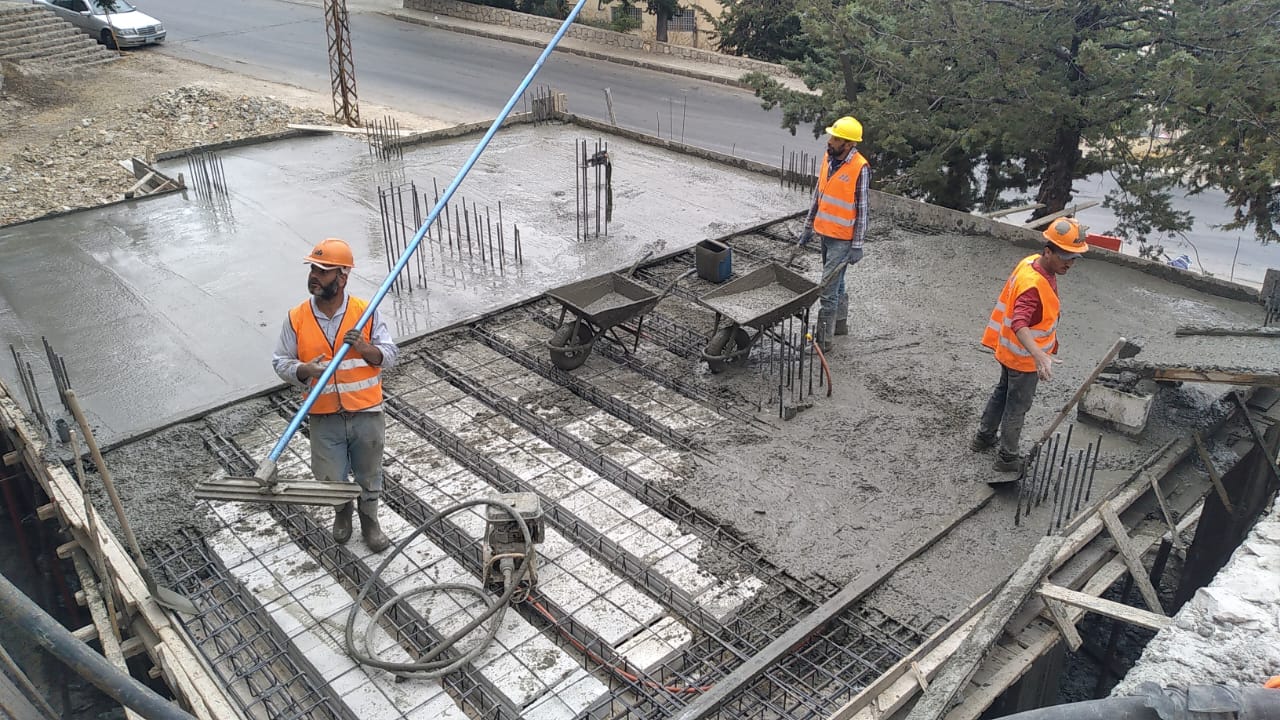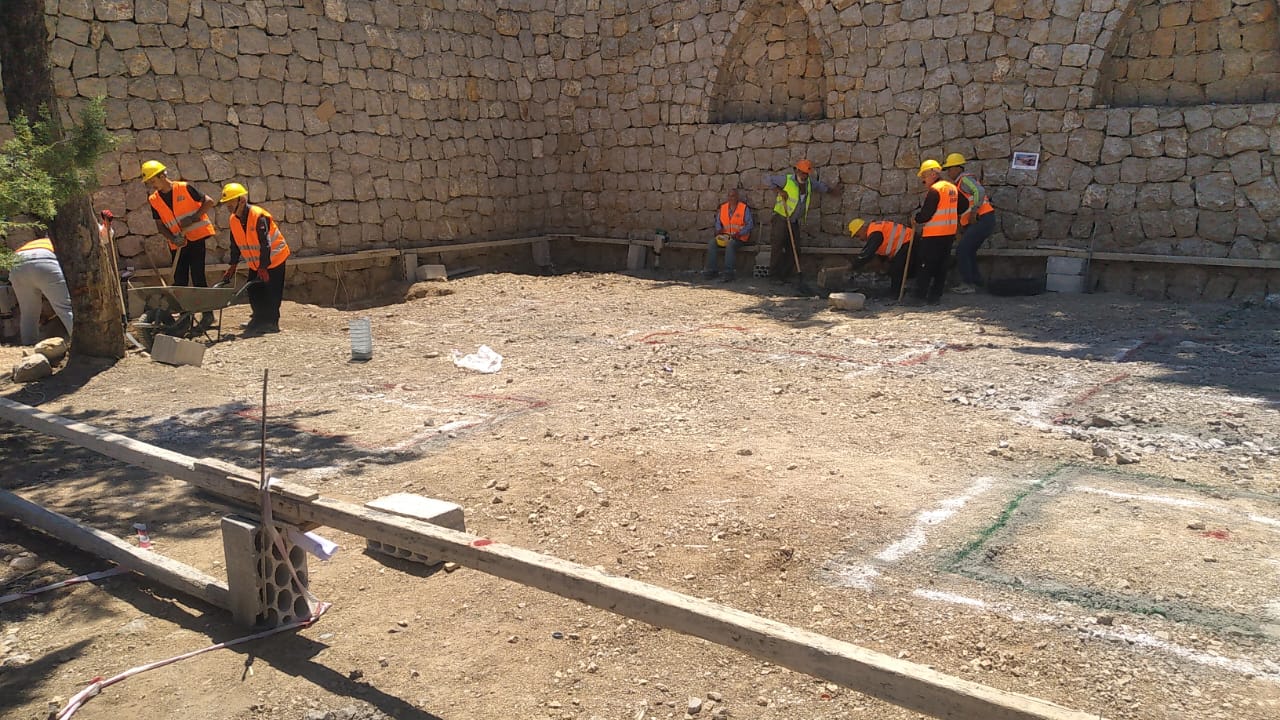
Beirut (ILO News) - As part of its mandate to promote decent work through infrastructure development, the International Labour Organization (ILO), through its Employment Intensive Infrastructure Programme (EIIP), funded by the German government through KfW Development Bank, is implementing a project to restore and enhance the historical pedestrian network in Rachaya El Wadi in Beqaa Governorate, in Lebanon. The initiative reflects a strong commitment to inclusive employment, heritage preservation, and sustainable community development.
.jpeg)
The project includes the rehabilitation and tiling of the town’s inner alleys and traditional walkways, the construction of seating areas and potable water points, as well as the addition of native plants and flower beds to beautify public spaces. A new public toilet facility was also built to serve both residents and visitors, addressing a key local need.

A total of 339 workers were engaged in the intervention, with nearly 30% being women and 3% persons with disabilities. In addition to creating decent short-term jobs, the project offered training to 85 beneficiaries in areas such as steel bending, concrete mixing, electrical installation, and tiling. Many of the women and youth involved acquired skills in tasks traditionally seen as male-dominated, expanding their opportunities for future employment.
Beyond the physical works, the project has contributed significantly to the social and economic fabric of the area. By rehabilitating pedestrian routes that traverse old commercial areas, the intervention reactivates local businesses, draws visitors, and strengthens Rachaya’s potential for tourism. The enhanced public infrastructure is expected to encourage new investment in the area—from cafés and hotels to locally rooted enterprises—revitalizing the town’s economy.

Sustainability has been central to the approach. The use of locally sourced stone from nearby quarries assisted the local economy at a time when businesses were adversely affected by the situation. The use of low-maintenance native vegetation, and water-saving timed faucets (taps) reflects the environmentally conscious planning. The municipality has committed to maintaining the works, ensuring continued benefit for the community, including the town festivals which attract visitors from surrounding areas. The municipality expressed their satisfaction and gratitude for the project.
The project also created opportunities for on-the job training for both men and women in the community. At the same time, local women participated actively in the implementation, taking on roles that are often male-dominated in the construction sector. These experiences underscore the inclusive and capacity-building nature of employment-intensive infrastructure- empowering individuals, enhancing local skills, and promoting equal opportunities for all.
This initiative under the ILO EIIP stands as an example of how public investment in infrastructure can drive job creation, empower marginalized groups, strengthen local economies, and preserve cultural heritage—all through a people-centred and sustainable approach.
.jpeg)





.svg)